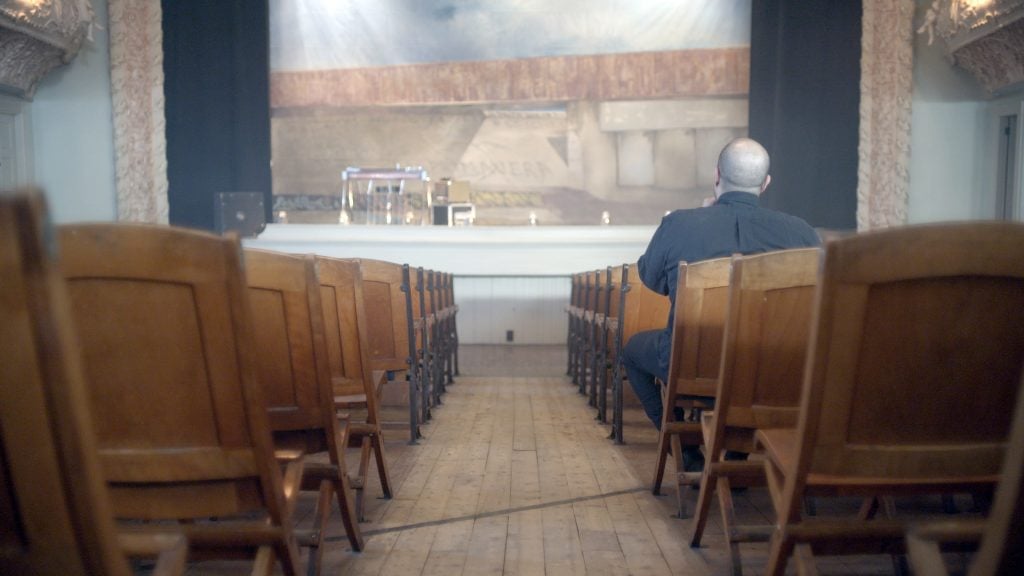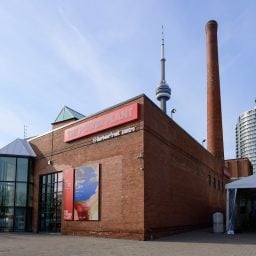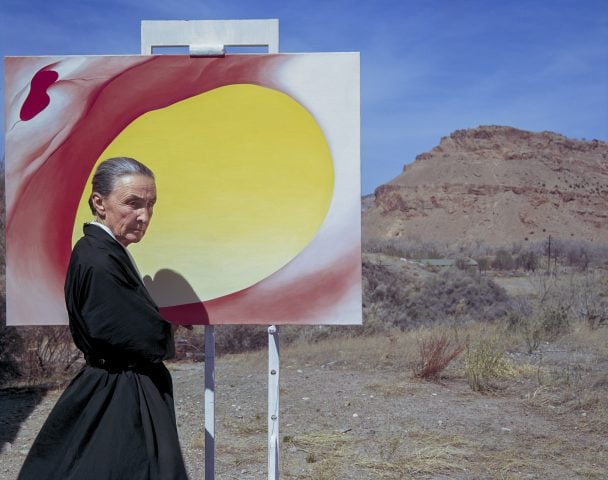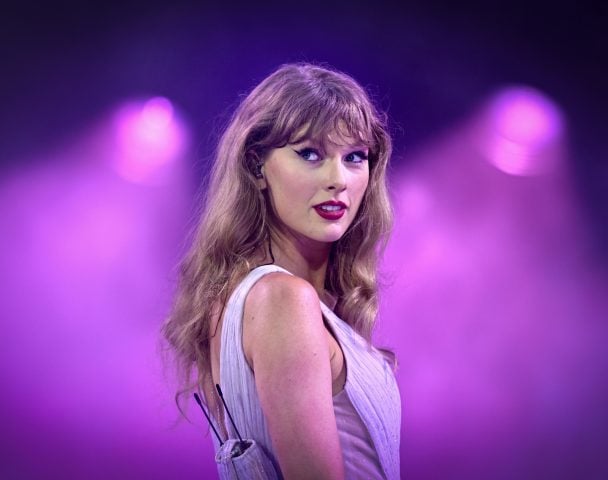It sounds like a riddle: What kind of opera house has no stage, and what sort of library has no books?
The answer is the Haskell Free Library, which sits on the border between the United States and Canada. The site doubles as the set for a new film by former Turner Prize joint-winner Lawrence Abu Hamdan, which debuts this week at the Toronto Biennial of Art (TBA).
The Victorian-era building, which hosts an opera house and a library, was originally constructed to provide education and cultural enrichment to the border communities located directly on the 45th parallel in between Rock Island, Quebec, and Derby Line, Vermont.
One half of the structure, including most of the opera seats, is located on U.S. land; the other half, which includes the library and the stage, is in Canada. (Now you understand the joke about it being the only library in the U.S. without books and the only opera house in the U.S. with no stage.)
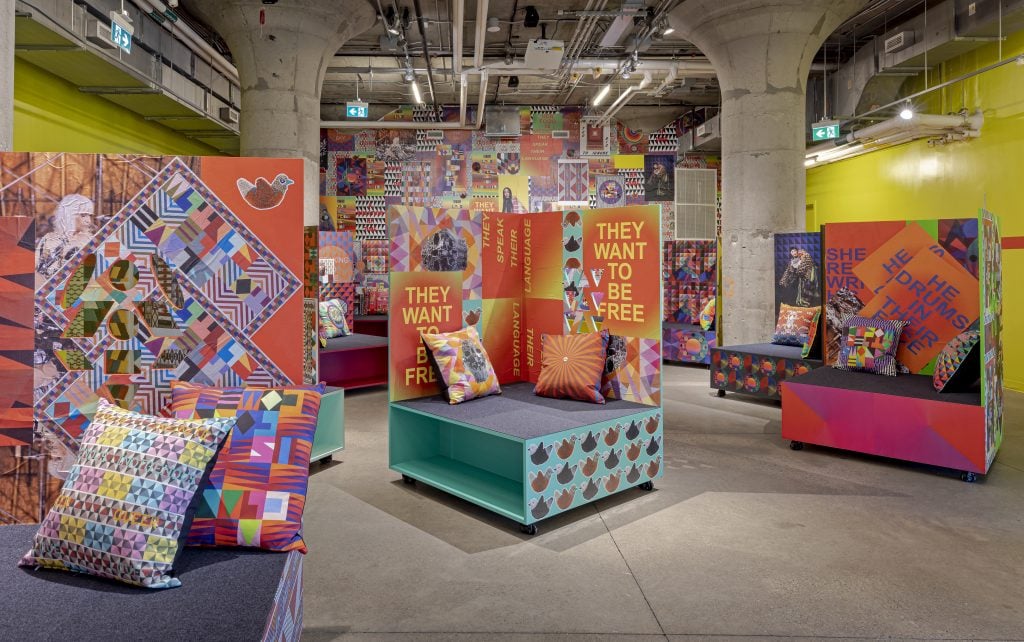
Jeffrey Gibson, I AM YOUR RELATIVE, MOCA Toronto (2022). Co-commissioned by MOCA and the Toronto Biennial of Art. Photos Toni Hafkenschied.
What makes this library and opera house so resonant, according to artist Lawrence Abu Hamdan, is the way it illustrates how borders are in fact not lines, but rather densely layered legal and judicial spaces. Such questions about space, race, national identity, and land are at the heart of the entire edition of this biennial, which, after a year of pandemic-related delays, runs from March 26 through June 5.
“What Water Knows, The Land Remembers,” curated by Candice Hopkins, Katie Lawson and Tairone Bastien, features work by more than 40 artists and includes formats ranging from workshops, guided walks, and artist talks to podcasts and storytelling sessions.
A total of 23 projects across nine venues were commissioned specifically for the occasion. “We are a commissioning biennial and conceive of exhibitions and public/learning projects alongside each other,” Patrizia Libralato, TBA’s executive director and founder, told Artnet News. “We see ourselves as a convening organization, bringing partners together with a collaborative approach critical to all we do.”
One of those commissioned projects is Hamdan’s film, 45th Parallel. The work introduces viewers to the library, which has no entrance from Canada (there is, however, an emergency exit on the Canadian side of the building and patrons from Canada are permitted to enter the U.S. door without reporting to customs). The film also revisits a tragedy that took place in 2010, when a U.S. Border Patrol agent shot an unarmed 15-year-old Mexican national across the U.S.-Mexico border.
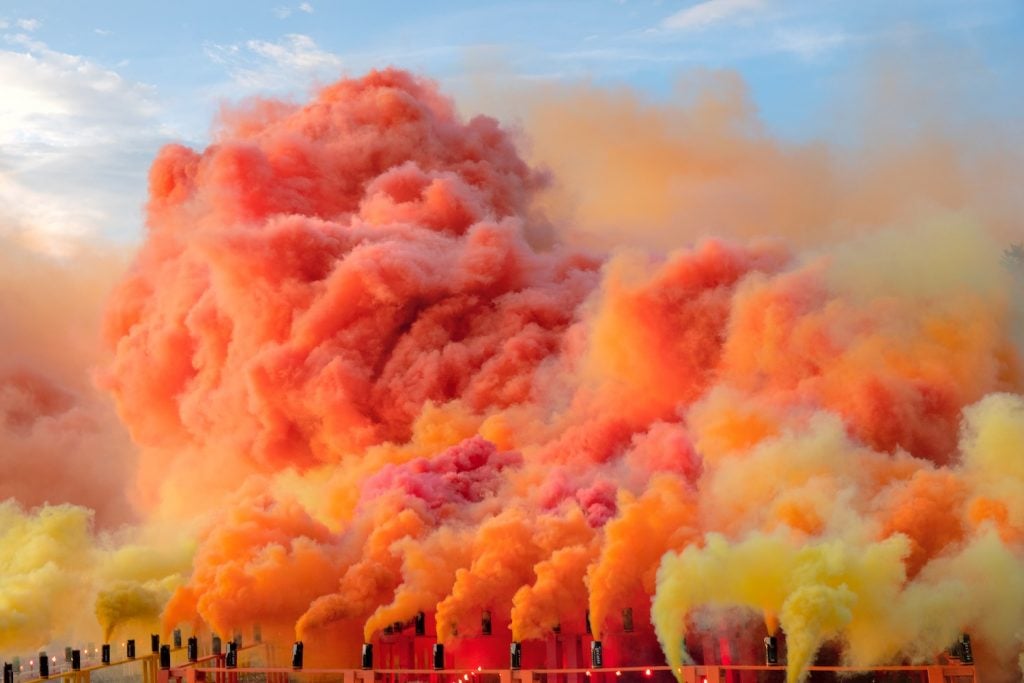
Judy Chicago in collaboration with Pyro Spectaculars by Souza, Diamonds in the Sky (2021). Fireworks performance, Belen, NM. © Judy Chicago/Artists Rights Society (ARS), New York; © Donald Woodman/ARS, New York
Hamdan is not alone in exploring local history and institutions in this edition of the biennial. Artist Judy Chicago is preparing Tribute to Toronto, a new site-specific performance on June 4. Visible from the shores of Lake Ontario, the work—part of her ongoing “Atmospheres” series—consists of non-toxic colored smoke released from a barge. It’s Chicago’s first-ever work on water.
“One of my goals is to offer viewers the opportunity to look intently at the glory of the natural environment,” Chicago told Artnet News, “one that is threatened with the destructive forces of climate change and human encroachment.”
The biennial is also presenting a number of research-intensive projects. The curators found themselves repeatedly returning to and sharing with partners a text by Mohawk artist Ange Loft, “Indigenous Context and Concepts for Toronto,” which the biennial commissioned for its 2019 edition. They also plan to distribute a new commission, a Black History Navigational Toolkit, by artist Camille Turner and writer Yaniya Lee.

Camille Turner, Nave (2021–22). Video installation. Commissioned by the Toronto Biennial of Art.
Summing up the ethos of the biennial, curator Tairone Bastien said it “is unique in its commitment to unpack the complex historical context where the biennial takes place.”
All of TBA 2022’s events, programs, and exhibitions can be viewed here.
